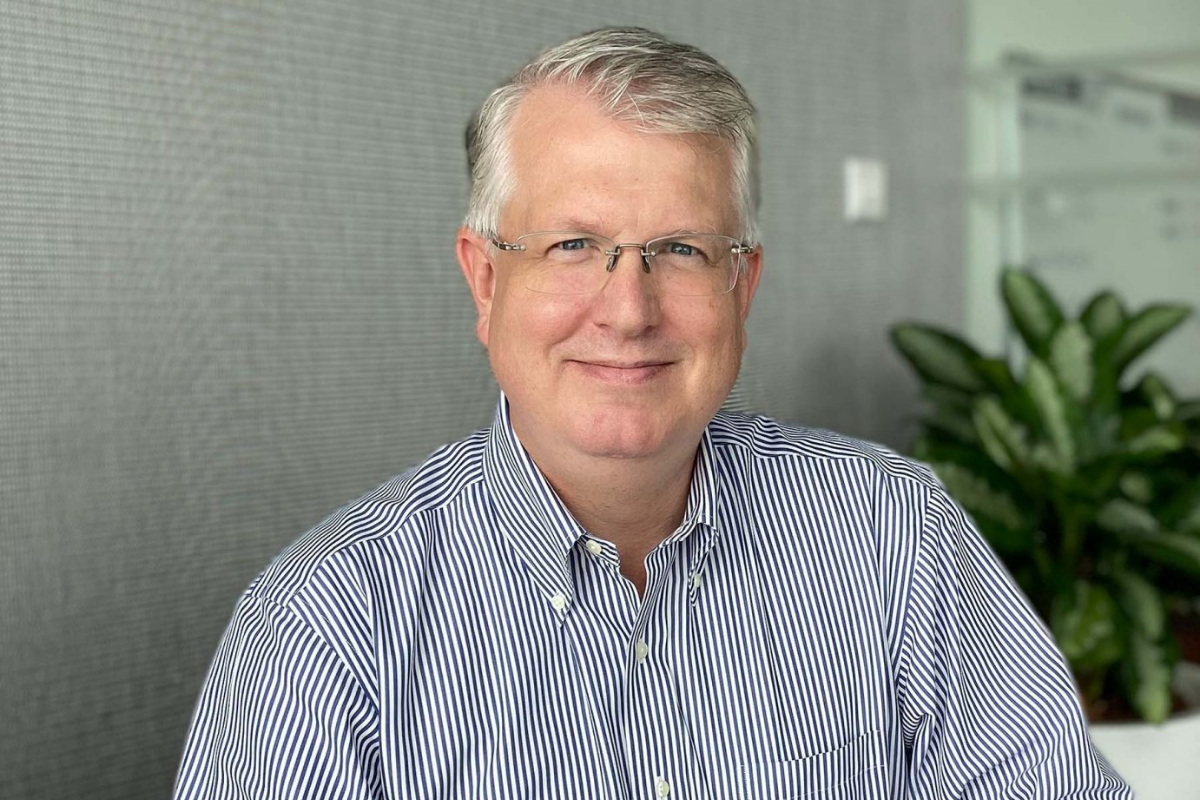Powering Growth: Mark Smith
For Digital Realty APAC Managing Director Mark Smith, the future is full of opportunity and expansion thanks to its strong team and an impenetrable culture of trust.
Your job becomes more than work the moment it becomes meaningful. And that’s exactly what Digital Realty APAC Managing Director Mark Smith was looking for right around three years ago. "I was at a point in my career where I was looking for new opportunities and new platforms where I felt I could make a real contribution," he recalls. "It’s been said that what people need is meaningful relationships and meaningful work because that creates happiness. And I think that’s exactly right. Meaningful work for me means having an opportunity to contribute, build and be part of a high-performing team."

For the past decade, Mark has immersed himself in the data centre space. Prior to signing on with the company, he worked at Savvis CenturyLink, which was Digital Realty’s largest customer globally at the time. "That’s how I first got to know Digital Realty," he explains. "From the outside, the company looked like one tremendous market opportunity in Asia–Pacific in terms of data centres, growth and success."
Mark says that identifying growth is key because that’s what helps ignite the positive momentum. "It really helps you have that wind at your back in terms of finding success for your team, the company and yourself," he reveals. "At the time, Digital Realty had an incredible opportunity, especially given its global platform and the amount of success it had already seen. By bringing myself into the equation, I saw how I could kind of move the needle, contribute and help to build something great here in Asia–Pacific."
Digital Realty has been in Asia for more than 10 years and has built a name for itself by powering global IT strategies for companies of all sizes, providing access to a first-of-its-kind global data centre platform designed to enable customers to scale their digital transformation and address the challenges of data gravity. And Mark has even bigger plans for its future.
It’s been said that what people need is meaningful relationships and meaningful work because that creates happiness.
"I like the idea of creating an aspirational goal, something we can all really work hard towards. Our goal is to have Digital Realty become the recognised leading data centre provider across Asia–Pacific," he explains. "If you think about it, there aren’t very many cross-Asia–Pacific platforms, so there’s a real opportunity for us there."
One of those steps is expansion. Digital Realty is growing its Asia–Pacific footprint in existing markets like Japan, Hong Kong, Singapore and Australia while also breaking ground in new markets. "This year we’re going to launch a number of new data centres across five countries. Some of them are in existing markets, and we’re also growing new markets," Mark says.

"We expanded into South Korea, substantially doubling down in terms of our investment there. We’ve also announced a joint venture in India – BAM Digital Realty – with Brookfield Infrastructure, which is exciting given the growth opportunities in India. There will be further announcements in the future."
In the US and with the acquisition of Interxion: A Digital Realty Company, Digital Realty has become a major retail colocation player around the world. "In Asia, we’ve started to roll out retail colocation in all the major metros," Mark explains.
The only way to do something like this is with a great team. You can’t serve your customers well, and you can’t win in a very competitive marketplace without the best people in the business.
"With the addition of Osaka, Singapore, Hong Kong, Tokyo and Seoul, we’ll be in five of the top six retail colocation markets in the region by early next year. Our growth has been organic, and building it from scratch has been challenging but incredibly rewarding."
Even more, Mark says, it’s pushing the company to keep focused on creating more value in the data centre, specifically around connectivity and building communities of interest with its data centres – an area Asia–Pacific hadn’t really focused much on prior. "Back in wholesale, it just wasn’t important," he points out. "But now with retail really focusing on the Global 2000 enterprise, connectivity and building communities of interest is really important and really creates differentiation."
Sustainable Steps
Digital Realty has been committed in terms of sustainability. Today, 100 per cent of its portfolio in Europe and 50 per cent of its portfolio in the US is powered by renewables. In addition, the company has also reduced its data centre’s carbon footprint by driving greater efficiencies. Its SIN12 centre in Singapore is leading the charge as its most efficient data centre in the region.
So far, the rollout is proving successful. It’s an achievement Mark credits to his team. "The only way to do something like this is with a great team. You can’t serve your customers well, and you can’t win in a very competitive marketplace without the best people in the business," he asserts. "We’ve worked very hard at building a great team, and I think we have the best team in the business in Asia–Pacific."
The great team is a result of Digital Realty’s great culture, one that inspires creativity, allows for humility and makes employees feel at home. "It’s important to have a culture of trust where people have each other’s backs, where they have a safe environment," he insists. "Sure, you can have debates and argue about things. But at the end of the day, the bar is set high, and the team pushes each other to achieve those goals. They keep each other honest and tackle challenges together."
According to Mark, one key ingredient to this culture and high-performing team is diversity. "It’s diversity of thought – how people think, their experiences, and what they bring to the table," he shares. "I really try to create a diverse group. It’s a process, and there’s no end in sight. It’s something we’re always improving on, and I feel really good about the progress we’ve made as a team and as a business over the past three years."
Proudly supported by: